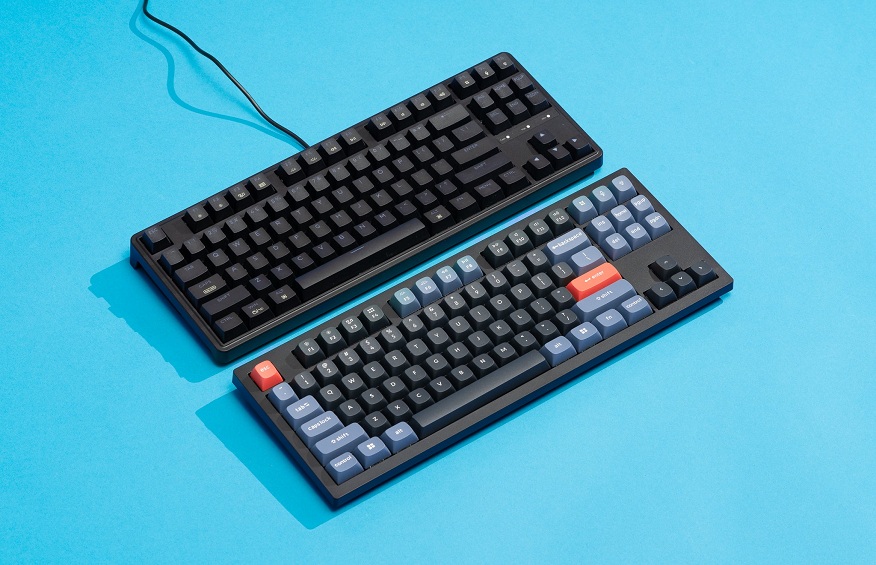In the realm of computer peripherals, few components evoke as much passion and debate as the humble keyboard. For years, the mechanical keyboard has been a favorite among enthusiasts, gamers, and professionals alike. While some might argue that a keyboard is just a means to input characters into a computer, the choice of a mechanical keyboard versus a traditional membrane one can significantly impact user experience and even productivity.
The Mechanical Advantage
At its core, a mechanical keyboard is distinguished by the individual mechanical switches beneath each key. These switches consist of several moving parts, including a hard plastic “stem” containing two metal contacts and a spring underneath. When a key is pressed, the stem pushes the contacts together, completing the circuit and sending the signal to the computer. The tactile feedback and audible click that accompany this process create a unique typing experience that many users find satisfying and efficient. The most popular switches are Cherry MX switches.
One of the primary advantages of mechanical keyboards lies in their durability. Unlike membrane keyboards, where a single failed key can render the entire unit useless, mechanical keyboards can withstand millions of keystrokes per key. This longevity makes them a cost-effective investment for users who spend extended hours typing or gaming.
Typing Experience and Productivity
The tactile feedback provided by mechanical keyboards is often cited as a key reason for their popularity. Typists, whether writers, programmers, or data entry specialists, appreciate the distinct sensation of key presses. This tactile response allows for more precise typing, reducing the likelihood of accidental keystrokes and contributing to a faster, more efficient typing experience.
Furthermore, the audible click produced by many mechanical switches serves a dual purpose. Beyond its satisfying sound, the click provides auditory confirmation of each keystroke, enabling typists to develop a rhythm and cadence that can enhance typing speed and accuracy. For those who spend a significant portion of their day at a keyboard, this subtle feedback can make a substantial difference in overall productivity.
Gaming Performance
Gamers, too, have embraced mechanical keyboards for their unique advantages. The tactile and audible feedback can enhance the gaming experience, providing players with a more immersive and responsive feel. Additionally, the ability to register multiple key presses simultaneously, known as “anti-ghosting,” is a crucial feature for gaming keyboards. This allows users to execute complex key combinations without the fear of missed inputs, providing a competitive edge in fast-paced gaming scenarios.
Customization and Personalization
Beyond their performance benefits, mechanical keyboards offer a high degree of customization. Enthusiasts can choose from a variety of switch types, each with its unique feel, actuation force, and sound profile. Whether a user prefers a linear switch for smooth key presses or a tactile switch for a pronounced bump with each press, the options are extensive. This level of personalization allows users to tailor their typing experience to their preferences, contributing to a sense of ownership and satisfaction.
Conclusion
While the choice between a mechanical and a membrane keyboard ultimately boils down to personal preference, the impact of a mechanical keyboard on typing experience, productivity, and gaming performance should not be underestimated. The tactile feedback, durability, and customization options make mechanical keyboards a compelling choice for users who demand more from their input devices. Whether you’re a professional navigating spreadsheets, a writer crafting the next masterpiece, or a gamer seeking the competitive edge, a mechanical keyboard might just be the key to unlocking a more satisfying and efficient computing experience.

